We're thrilled to welcome Brian Hollar from Marymount University to dive into the economic lessons hidden within Biblical stories. In this episode, Brian highlights some captivating stories from the first few books of the Bible (The Torah) and demonstrates how economic concepts are embedded in these ancient tales. From tales of sunk cost and scarcity to lessons in decision-making and game theory, Brian shares the economic wisdom woven into these timeless narratives. You don’t want to miss out on this unique blend of ancient wisdom and modern economic insight, setting the stage for a thoughtful and enlightening holiday season.
In this episode, we discuss:
Brian’s academic background and interest in economics
Biblical stories that can be used to teach billions from multiple faith backgrounds
What the story of Noah’s Ark teaches us about sunk costs
And a whole lot more!
Catch up on some old episodes:
You can also listen to us on Google Podcasts, TuneIn Radio, and Apple Podcasts. If one of these is your go-to podcast service, be sure to rate us and subscribe!
Watch this episode on YouTube:
Some show notes:
Before we jump into drinks, we want to make sure we let you know a bit more about Dr. Brian Hollar, our guest for this episode. Here’s a piece of his bio courtesy of Marymount University:
Brian J. Hollar is the director of Marymount’s undergraduate Economics program. Dr. Hollar’s current research involves investigating the effects of religiosity on marriage markets. His areas of research include the economics of religion, law and economics, public choice, and economic development.
Prior to entering academia, Dr. Hollar worked for some of the world’s largest corporations, including Mitsubishi, Westinghouse, Siemens, IBM, and DuPont. Dr. Hollar’s professional background includes working in project management, engineering, sales, and marketing roles with significant international business experience. Six of these years were spent in an intense cross-cultural Japanese-American work environment.
Dr. Hollar received a Ph.D. in Economics at George Mason University, a law degree from George Mason University, an M.B.A. from the University of Florida, and a B.S. in Mechanical Engineering from Virginia Tech. He is currently an active member of the Virginia bar.
What’s not mentioned in the bio, and continues to astound Matt, is that Brian has traveled to over 100 countries! For this episode, though, Brian joined from his office at Marymount. As a result, he’s opted for a nice cold A&W Root Beer. Matt had a Patchway Pale Ale from Marzoni’s and Jadrian enjoyed a Josephsbrau Hefeweizen from Trader Joe’s.
Brian was invited to the show because he and Jadrian have been working on a paper with Amel Ben Abdesslem on a paper that demonstrates how biblical stories can be used to teach economic concepts. A working paper should be coming soon, but Brian was happy to share some insights into those lesson plans.
Up first, Brian discussed how the story of Noah’s Ark could be thought of as God not falling prey to the sunk cost fallacy. God realized he had spent a lot of time investing in the world, but that he needed to start over. The ark was used to save several civilizations but then brought in the floods to start over.
The second story features the story of Joseph and his brothers as told in Genesis (37–50). Joseph, the most beloved of Jacob's sons, is hated by his envious brothers. Angry and jealous of Jacob's gift to Joseph, the brothers seize him and sell him into slavery. Brian highlights self-interested behavior and the economics of slavery. It’s a chance to discuss why some institutions around the world still allow slavery to exist, but other societies have outlawed it. There are some other great scenes, but we’d be remiss not to share the scene from Joseph and the Amazing Technicolor Dreamcoat:
While Brian’s chat was mostly focused on Old Testament stories, Matt contributed a story from the New Testament–the Parable of the Talents that mirrors some of the conversations from the story of Joseph and his brothers. Here’s a summary from Wikipedia:
The "Parable of the Talents", in Matthew 25:14–30 tells of a master who was leaving his house to travel, and, before leaving, entrusted his property to his servants. According to the abilities of each man, one servant received five talents, the second had received two, and the third received only one. The property entrusted to the three servants was worth eight talents, where a talent was a significant amount of money. Upon returning home, after a long absence, the master asks his three servants for an account of the talents he entrusted to them. The first and the second servants explain that they each put their talents to work, and have doubled the value of the property with which they were entrusted; each servant was rewarded:
His lord said unto him, Well done, good and faithful servant; thou hast been faithful over a few things, I will make thee ruler over many things: enter thou into the joy of thy lord.
— Matthew 25:23
The third servant, however, had merely hidden his talent, burying it in the ground, and was punished by his master:
Then he which had received the one talent came and said, Lord, I knew thee that thou art a hard man, reaping where thou hast not sown, and gathering where thou hast not strawed: And I was afraid, and went and hid thy talent in the earth: lo, there thou hast that is thine. His lord answered and said unto him, Thou wicked and slothful servant, thou knewest that I reap where I sowed not, and gather where I have not strawed: Thou oughtest therefore to have put my money to the exchangers and then at my coming I should have received mine own with usury. Take therefore the talent from him, and give it unto him which hath ten talents. For unto every one that hath shall be given, and he shall have abundance: but from him, that hath not shall be taken away even that which he hath. And cast ye the unprofitable servant into outer darkness: there shall be weeping and gnashing of teeth.
— Matthew 25:24–30
This particular lesson from the Bible is a good one to introduce concepts around saving, investing, and personal finance. There was one other story we talked about, but it didn’t make the cut…
This week’s pop culture references:
While the entire episode talked about different movies and TV shows that highlight the stories we discussed, we did mention briefly that some of the scenes are available on BroadwayEconomics.com. In this episode, Matt discussed the song “Pharoah’s Dreams Explained” from Joseph and the Amazing Technicolor Dreamcoat. The scene discusses business cycles and can be used to teach about economic cycles. You can watch it here:
You can also listen to the song on Spotify:


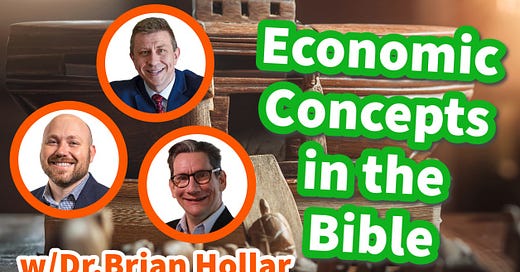
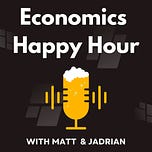




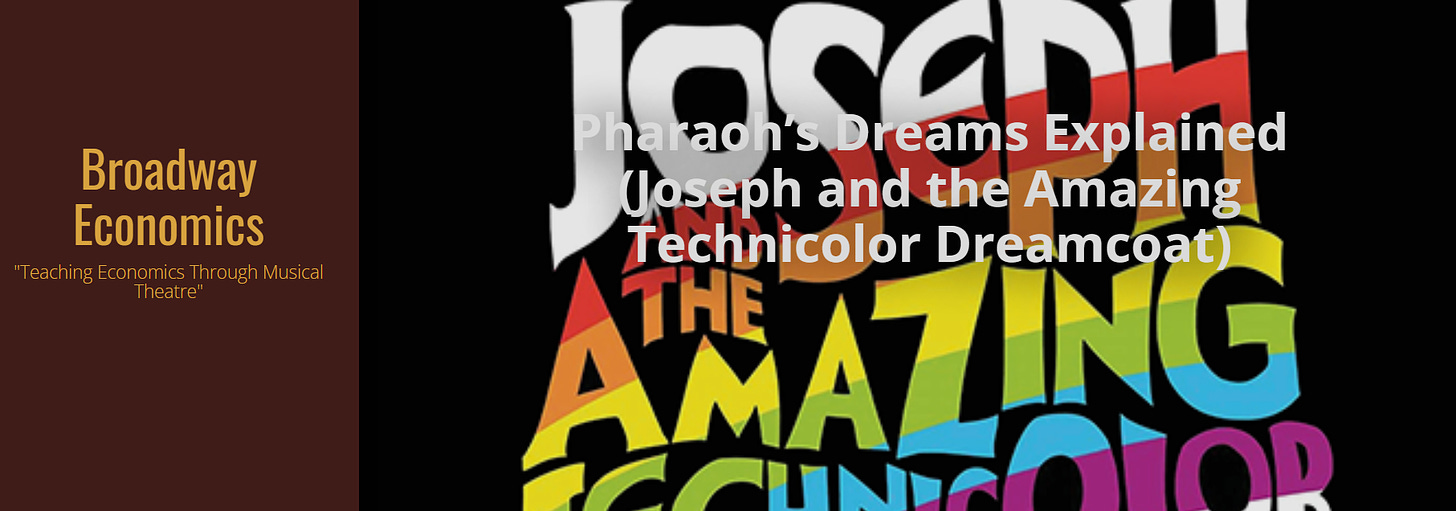







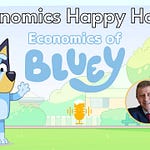


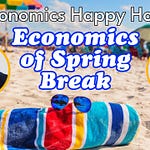
Share this post